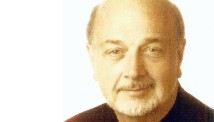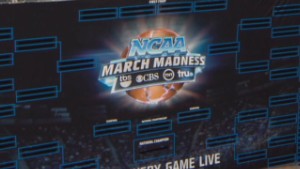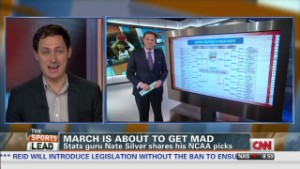Editor's note: Mike Downey is a former columnist for the Los Angeles Times and Chicago Tribune.
(CNN) -- I give Bob Newhart a call because I have a hunch he will have something funny to say. I am right.
The subject: Loyola of Chicago and the 50th anniversary (this Saturday) of its winning 1963's national championship of college basketball.
The man on the phone: A proud Loyola grad, maybe the school's most well-known: a comedian, actor and star like few others in this great big TV Land of ours.
Hi, Bob.
"You know, my first memory of Loyola basketball actually goes back to 1949," says the 83-year-old Newhart, who is still second to none in knowing how to begin a monologue. "Loyola's team came home from winning a big tournament game that we weren't supposed to win. 'Giant killers!' they were called. We were all naturally proud of our team. 'Loyola the Giant Killer.'
 Mike Downey
Mike Downey "Then it turned out that players from the team we beat (Kentucky) got caught shaving points. They were crooked. So I guess that giant we killed wasn't quite as gigantic as we thought.''
Funny now. Not so much back then, but funny now.
Happily, a funnier thing happened on March 23, 1963, when the Loyola Ramblers shocked the two-time defending champion Cincinnati Bearcats and the whole college basketball world by winning the NCAA tournament. Bleacher Report: Last-Minute Bracket Advice
Become a fan of CNNOpinion Stay up to date on the latest opinion, analysis and conversations through social media. Join us at Facebook/CNNOpinion and follow us @CNNOpinion on Twitter. We welcome your ideas and comments.That team:
Won by the wacky score of 111-42 over Tennessee Tech in the tournament's opening game, to this day, the largest margin of victory in the NCAA Division I men's tournament's history.
Next defeated a Mississippi State team that had to sneak OUT of the state of Mississippi just to play the game, certain parties down South objecting to their all-white boys occupying the same court as a Chicago team with non-white young men on it.
Next bounced the Big Ten boys from Illinois by 15 points.
Next decked the Duke team in the Final Four by 19 points.
And then, down by 15 points in the second half, came back to conquer Cincinnati in overtime 60-58 on a last-second shot.
 Cisco lets workers enjoy March Madness
Cisco lets workers enjoy March Madness  Nate Silver predicts March Madness
Nate Silver predicts March Madness What a story.
"We win! We win!" roared the Ramblers' radio voice, Red Rush, on the air.
The NCAA title game had also been on national TV for the first time, but Chicago's WGN delayed it to air a live telecast of a high school championship game instead. "So throughout the city," Chicago historian and author John R. Schmidt recalled recently for WBEZ 91.5 FM, "many crafty radio listeners used their knowledge of Loyola's amazing comeback to clean up on barroom bets."
I tell Newhart this.
"Ah, now THAT's the Loyola I know!" he says mirthfully.
No joke, though, Bob: Loyola (29-2) was king of college ball.
Not another university from the state of Illinois has won the NCAA men's crown since. UCLA took 10 of the next 12. The football-free Jesuit institution from the Near North Side of Chicago went back into relative anonymity in big-time athletics, an onlooker as the likes of Indiana and Duke and (yes) Kentucky became lords of the rings.
Loyola hasn't even been in the NCAA tournament field since 1985.
Bleacher Report: 25 Greatest Moments in March Madness History
I recently enjoyed phone conversations with three of Loyola's surviving 1963 players -- Les Hunter, Jerry Harkness and John Egan -- while doing a story for History Channel's magazine. Each is pleased by this burst of golden anniversary limelight, although it sure would be a nicer honor if the Naismith basketball museum in Springfield, Massachusetts, would heed a proclamation made by lawmakers in Springfield, Illinois, that the Ramblers should be enshrined in the game's Hall of Fame.
Because guys of a certain age can tell you: This was one amazing team.
"I remember pulling for them because Cincy was a basketball power back then and this little school from Chicago beat them," said Bill Frieder, 71, who later would coach Michigan and Arizona State. "I think everyone was stunned."
Stunned by the WAY this school won, not just the fact that it did win.
It used just five players. No other Rambler set foot on a court in that NCAA title game except Hunter, Harkness, Egan, Ron Miller and the man whose last-instant putback of a Hunter miss gave Loyola the championship, Vic Rouse.
Coach George Ireland did have a couple of other valuable guys for a while, but Pablo Robertson (who became a Harlem Globetrotter after college) and Billy Smith flunked their midterms in early February and were ruled ineligible.
"We played five guys a lot, and we had our tongues hanging out a lot," Egan, 70, a Chicago attorney, told me. He didn't mean the way Michael Jordan's tongue would later hang out. This was sheer exhaustion, not a facial tic.
The coach ran the Ramblers ragged, pressing opponents from one end of the gym to the other, no matter how many tongues hung.
Loyola scored 100 points or more in its first six games. Topped the 100 mark 11 times in all. Lit up Western Michigan for 123.
One of the season's first foes was North Dakota, coached by Bill Fitch, who would later take the Boston Celtics to the 1981 NBA championship. An under-used member of Loyola's team who is still with us, Rich Rochelle, did an interview not long ago in which he remembered the way Ron Miller guarded the visiting team's top player so relentlessly, Miller even followed the kid during a timeout to the North Dakota bench.
Substitutions with a big lead? Sympathy for the losing side? Nah.
"Ireland had no mercy," Rochelle recalled.
The coach had a bleeding ulcer and a curt manner at times, which didn't endear him to his own guys. But he's the one who got them there. His contacts in New York City landed him Harkness, Miller and Robertson. He turned to Nashville to recruit high school teammates Hunter and Rouse. He added the feisty Irish local boy Egan to the stew. He started four black players when such a thing wasn't being done.
Mississippi State's players didn't cotton to racial bias any more than the Chicago school's did. They and their coach defied Dixie politicians by catching a plane to Michigan for a regional game in East Lansing. Hands were shaken, black and white, and a splendidly played game ended 61-51 in Loyola's favor.
Eight days and two victories later, Loyola found itself in Louisville, Kentucky, making history.
Championships were not in Loyola's DNA. It did get to that National Invitation Tournament title game at Madison Square Garden in 1949. But the wins over City College of New York and Kentucky lost their luster when point-shaving accusations were confirmed against both losing teams.
Bleacher Report: Power Ranking Cinderellas with Bracket-Busting Potential
Newhart, class of '52, didn't go there for basketball.
"No, but I think at that time they enforced a 5-foot-9 or over limit," he fibs.
When a chance came for his college to become as famous in sports as he had just become in show biz, Newhart said he didn't pay attention because "I was still worrying they'd find me out and make me go back to being an accountant."
He was for real and Loyola was as well.
Oh, the Cincinnati kids did go up by 45-30, but the Ramblers wouldn't fold. Harkness, a legit All-America player, and Hunter, one of the most unfairly underrated college players of all time, led the way. In overtime, tied at 58, Harkness expected to shoot, but said, "I just didn't feel it." He passed to Hunter, who let it fly but missed. Rouse rebounded it and laid it in at the horn.
Fifty years later, not everybody's still around.
The buzzer-beating hero, Rouse, died in 1999. The cagey coach, Ireland, went two years later. The rah-rah radio guy, Rush -- "He eyes it, he tries it, he buys it!" -- was silenced eternally in 2009.
Several players do remain, basking in the glory of their school's one shining moment.
As do other alumni.
"It's a great, great school," said Newhart sincerely, and not just because the Newhart Family Theater on campus now bears his name. "You know, my sister taught there, and she became a nun. And the new pope is a Jesuit, and I'm a Jesuit-educated guy, so I'll be praying that he knows what he's doing. Just like I'll also pray that Loyola doesn't try to deny that I ever went to school there."
No chance of that, Bob.
Just as no one can deny that Loyola of Chicago was once the star of the show.
{ 0 comments... read them below or add one }
Post a Comment